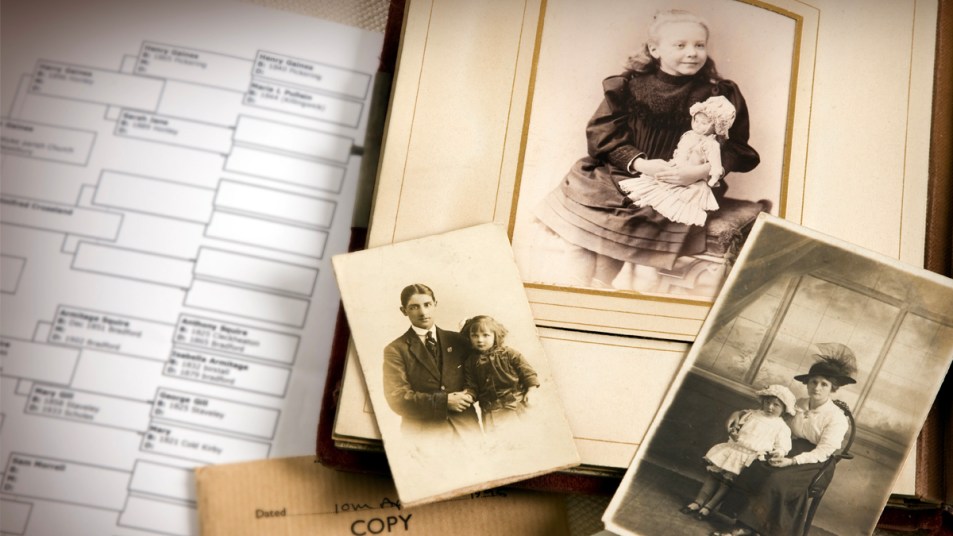6 Expert Tips From a Genealogist for Researching Your Family History

Denise Montebello has always been fascinated with researching her family history, thanks in large part to her grandfather. He spent years fleshing out the branches of their family tree and even copied pages and pages of records by hand.
Years later, after her grandpa passed away, Montebello continued his research. She now has a professional certificate of genealogy and loves helping others learn how to uncover facts about their own families with her company Rami Genealogical Research.
If you’re interested in researching your family history, Montebello says it might be challenging at times or feel like you’re hitting a lot of dead ends — but don’t give up.
Here are her best tips, whether you’re just getting started or you’re well on your way.
Start by writing down everything you know.
Montebello says it can be free-hand or even a bullet-pointed list, but writing everything you know down will help you gather your thoughts and identify your holes.
“As you write, note any questions you have and who might know the answers,” she says. “Then interview your relatives about what they recall, especially the oldest members of your family — the grandparents and great-aunts and such.”
Gather photos, write down facts, and even record things along the way. Slowly but surely, you’ll start filling in information.
Embrace online resources.
It can feel like a never-ending puzzle when you first dive into your family history, but Montebello says it’s a lot easier to get started than it used to be.
“With the advent of the internet and more recent online resources like Ancestry and FamilySearch, discovering your family history has become so much easier,” she says. “New records are being digitized every day, and much information that would have required hours of work in the past is now quickly accessible online.”
Genealogy really can be done by anyone who has access to a computer. So start with these websites and just start Googling names, dates, and whatever other info you have. You might uncover more than you think.
Don’t let yourself get overwhelmed.
Now this is the flip side of online resources — yes they are great and easy to access, but they can quickly leave you feeling overwhelmed. As you get started, Montebello offers some advice.
“With any research project, decide ahead of time what your goal is,” she says. “Is it to simply create a family tree of all individuals in your history back to a certain date? To document proof of a relationship? To record stories to leave for your grandchildren?”
She says knowing these things will help direct your research and stay focused.
Start with free resources before you pay.
You can find so many good websites, podcasts, newsletters, and webinars about how to get started researching your family history, so Montebello says see what’s out there before you pay for any subscriptions.
“Local historical societies and libraries offer free access to sites like Ancestry, and FamilySearch is always free, including recorded lessons and how-to instructions for most genealogical topics. These are great places to start.”
Consider genetic testing to help expand your research.
Genetic testing and sites like 23andMe.com are widely available these days, and they can often help uncover new information. “Be prepared for unexpected surprises — they are very common,” Montebello says. “Thousands of participants have discovered family secrets.”
Montebello says as you’re developing a family tree, it’s important to decide if you want to pursue genetic testing, a family tree, or both. She says genetic connections can only be traced back by six generations, whereas other ancestors in history can go much farther back.
If you decide to work with a professional, find someone you like.
If you decide to get help in researching your family history, look around and find someone that’s a good fit for you. Montebello says many professional genealogists offer a free consultation if you’re considering hiring them. As you look, you might consider someone who specializes in a certain area of the country or who really knows a certain area. She says to find a reputable person, start by looking with the Association of Professional Genealogists. They can help you find someone in your area.
Montebello says starting with the simple question, “Where do I come from?” can become a really fulfilling hobby over time. “It’s about relationships, a feeling of connectedness, and a desire to learn more about ourselves,” she says. “Why do people write or read biographies? Because they want to share their experience and others can relate to or learn from that. Family history becomes more interesting as you age because you reflect more on your human path.”













